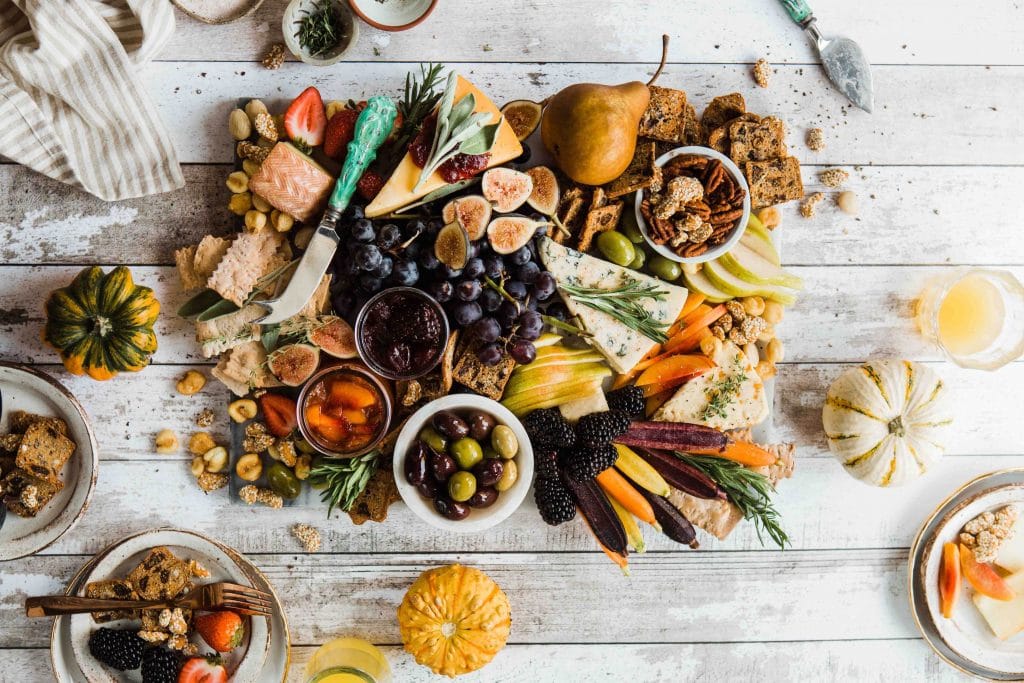A Guide to Mindful Eating

Ever eaten something, but can’t remember what it was, how much you ate, or how you felt while eating it? With the busy and often stressful lives we lead, we often find ourselves choosing food out of convenience, comfort or boredom. As a result we don’t always make the right food choices or develop the healthy eating habits we need to help us hit our goals.
The practice of mindful eating aims to help you get more control over your eating habits, and has been shown [1] to support healthy weight loss, reduce binge eating, and make you feel better, both physically and mentally.
It involves:
- Eating without distraction.
- Paying attention to when you feel full, and whether you’re actually hungry or not.
- Noticing how the food you’re eating makes you feel.
- Appreciating your food, and gaining a better understanding of what foods nourish you.
Read on for some small but effective habits that you can implement in your daily routine so you can start enjoying the benefits of mindful eating.
Pay Attention To How You’re Feeling
Before you start preparing your next meal today, think about how you’re feeling. Are you feeling stressed, distracted, or are you in a rush?
Now think about the food that you were planning to eat.
Is it a food choice that will nourish you and make you feel good, or is it junk or convenience food that you’re choosing because of how you feel right now?
When we feel stressed or we’re tight on time it can all too easy to choose the most convenient option, which often isn’t the healthiest choice and will just make us feel worse. It’s a good idea to plan your meals for the week, so you have nourishing and healthy food available to you without having to spend too much time preparing it.
Check out this great beginner’s guide to meal prepping if you need a bit of a helping hand to get started!
Sit Down
We’re all guilty of eating a meal at our desks, in the car, or while running around getting ready in the morning… you name it!
For at least one meal, take the time to sit down somewhere quiet and relaxing while you eat.
Eating while standing up, while working or rushing from one commitment to the next is the definition of mindless eating. It affects our food choices, and can even have a negative impact on digestion. Getting into the habit of giving yourself the time and space you deserve to sit down and consume your meals is the first step to gaining more awareness of what you are eating, and how it makes you feel.
If you want to keep track of your meals and how you were feeling, when making an entry in Progress, you can also make a note of what you ate that day by tapping ‘Make a Note’ after entering your measurements and weight.
Switch Off
Turn off all your screens while eating. Yep - that means no scrolling through social media, shut that laptop, and switch off the TV.
If you can, try and eat in total silence, or with just some calming music in the background.
Start Smaller
Serve up a smaller portion that you normally would, while still making sure that it’s sufficient to fuel your activity levels.
When we’re not paying attention, we often serve up a larger portion of food than we actually need, and a lot of us are conditioned to finish everything on our plate before leaving the table.
If you’re worried about overeating, this is a great way to start understanding how much food you really need to feel satisfied. Any leftovers you have can always be popped in the fridge for another meal, saving you time and guaranteeing another healthy meal later - win!
Chew 30 Times
During at least one meal a day, chew each bite 30 times, put your cutlery down between bites, and take your time savoring the flavours, aromas and textures.
This will force you to slow down while you eat, and improve your digestion plus reduce the risks of bloating, constipation and heartburn.
Other than improving digestion and being more mindful of what you’re eating, studies suggest [2] that chewing more helps with controlling weight. When researchers asked participants to chew each bite of their food 40 times, they found they ate less and were better able to regulate their hunger hormones.
Stop When You’re Full
This tip is simple. While you’re eating, pay attention to how you’re feeling, and when you feel full, stop.
Practice Gratitude
At Progress we’re big fans of practicing gratitude daily - we find it has a great impact on our general mood.
Being grateful for our food is also an important part of developing a mindful eating habit. We encourage you to also try to take a couple of moments to think about what you’re grateful for in relation to the food you’re about to eat whether that’s access to healthy and safe food, the people who work hard to provide us with food, or those who you’re enjoying your meal with.
References
[2] https://academic.oup.com/ajcn/article/94/3/709/4411851
Achieve your weight-loss goals with an intuitive app that transforms your data into a visual overview of your progress, helping you to stay motivated and on track.
